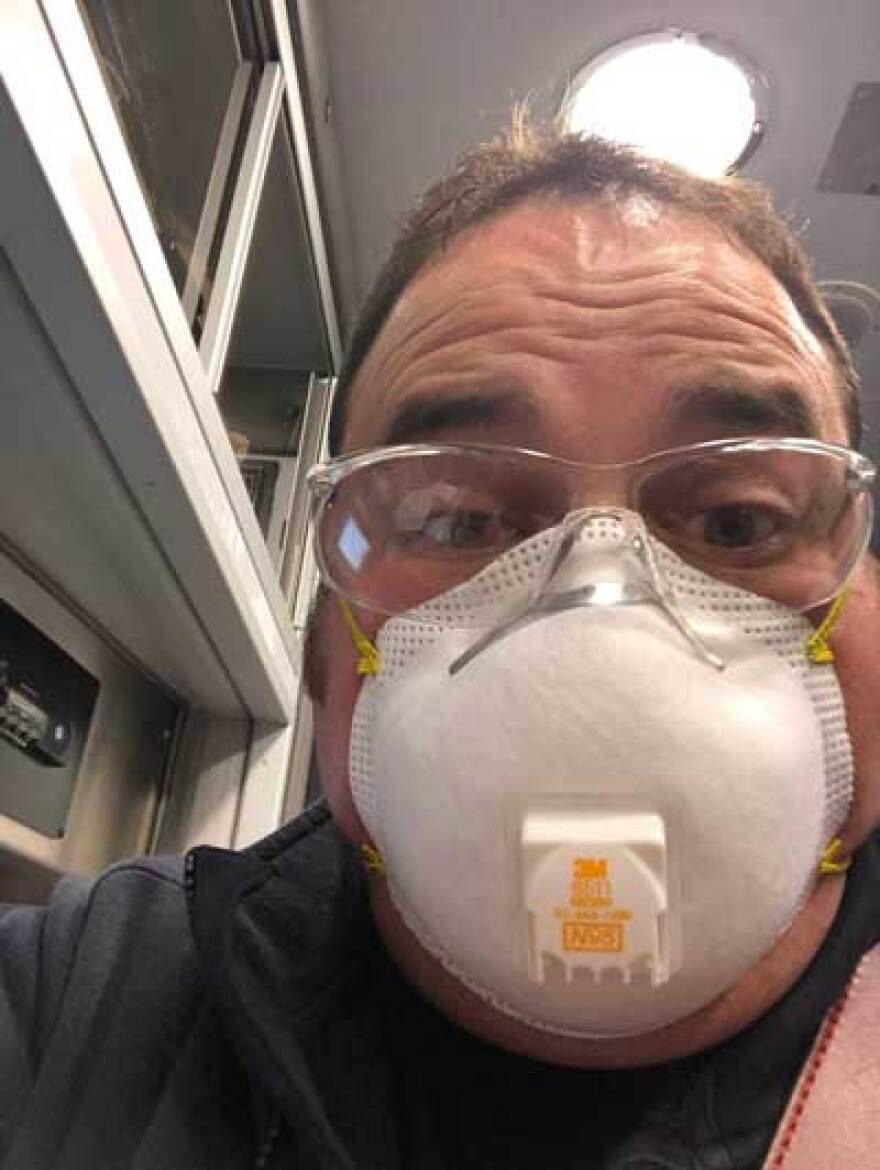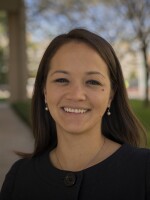This is part of Essential Voices, a series of interviews with people confronting COVID-19.
Health care workers and first responders face serious risks dealing with people who have COVID-19. Bryce and Brittanny Budimir, a married couple in Kankakee, Illinois, both work on the front lines of the pandemic.
Because of the risks they face in their jobs, the Budimirs decided in mid-March to send their three young children to live with their grandparents. They spoke with reporter Christine Herman about that decision and the other ways the COVID-19 crisis has affected their family.
The following transcript has been lightly edited and condensed for clarity.
Bryce: My name is Bryce Budimir. I'm a paramedic firefighter.
Brittanny: My name is Brittany Budimir, and I have been an emergency room nurse for the last three years.
Bryce: Most of the 911 calls we’re getting are still your typical emergency medical calls. But we are taking precautions, assuming everybody could have COVID-19. We wear N95 masks, and we bring in surgical masks for the patient and family, no matter what the call is.

Brittanny: I'd say for over a month now we've been seeing patients with COVID-19 symptoms. The consensus seems to be that we've been seeing this since January, we just didn't know what it was.
It definitely is anxiety-provoking. You know, I've heard a lot of nurses say, ‘Well, we didn't sign up for this.’ But we did sign up for this, and that's why we all continue to show up because we love our patients.
The problem we're seeing with this virus is that patients are showing minor symptoms and are absolutely okay to discharge, and then suddenly people are progressing and worsening. We've had lots of patients have cardiac arrest, when they were fine just an hour ago.
One of the hardest things is that when you see these patients are crashing, trying to stop yourself from just running into the room without any kind of gear on. It’s extremely heartbreaking. You have to make sure that you're covered.
There have been several times where, you know, if we can just get a mask and goggles on, we’ve got to go because these patients are dying very quickly. It's been a completely new experience for us.
I had a patient that I sat with as he died, because the families can't come into the hospital. That has been extremely hard, because nobody should ever have to die alone. And we will always make sure no one ever dies alone. We will always be there with them.
We started seeing these really extreme cases, and since my husband is a firefighter paramedic and I'm an emergency room nurse, we are both around it and we both can't take time off. So we decided to have our three children go live at my parents’ house.

Bryce: Knowing what Brittanny has seen, what she's dealing with, you know, that helped me decide to agree with her, to have the children go over and stay at her parents’ house for the time being.
It was a hard decision. But they understood what was going on. They know what Brittanny and I do for our jobs. Especially our oldest, who's 11, he does understand.
Brittanny: Our middle child is eight and our youngest is only a year and a half. So he's the only one who doesn't understand.
Bryce: We text back and forth, video chat with them a couple times a week. We see if they need anything. We drop stuff off, and if they come outside, we stay away from them, you know, no hugs, no kisses, anything like that.
But, you know, they'll show us some stuff that they've been doing at their grandparents' house, making forts and driving tractors around.
Our youngest, Tyler, doesn't understand why mom and dad can't pick him up, and why after 10 or 15 minutes, you know, we blow him kisses and we get in the car and leave.
Hear more personal stories on COVID-19 from the America Amplified initiative
Brittanny: It's been extremely hard. My children are pretty much everything in the world to me.
Bryce: It's so quiet in our house, you could hear a pin drop. It's so strange.
What I'm looking forward to most is having the kids back in the house, having them yelling and screaming, toys all over the place, having them in the backyard jumping on the trampoline, you know, just being able to be their dad and hold them and hug them.
I just want the kids to know that mom and dad love them, that we're doing this for their best interests and that this is all going to be over soon.
And nothing like this, hopefully, will ever happen again.
I can't wait to hold them again.
Follow Christine on Twitter: @CTHerman
This story was produced by Side Effects Public Media, a news collaborative covering public health.
Side Effects, WFYI and Indiana Public Broadcasting are asking Americans about health issues, as part of America Amplified: Election 2020. The public media initiative, funded by the Corporation for Public Broadcasting, uses community engagement to inform and strengthen local, regional and national journalism. Follow on Twitter at @amplified2020.
If you have a personal story to share from the front lines of this pandemic, wherever that may be, email health@wfyi.org.








